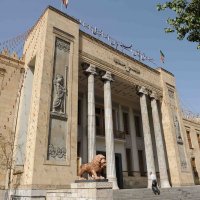December 26-2014

Bank Melli is in perilous shape, explains CEO Abdonnasser Hemmati, because the government continues requiring it to make low interest loans while paying high interest to depositors.
The government often forces the bank to make loans to the government to cover government debt and to favored businesses that don’t always feel a need to repay the loans on schedule.
Around 60 percent of Bank Melli’s funds are inaccessible, Hemmati said. He said Bank Melli has one quadrillion rials ($28.6 billion at the open market rate) of funds but can only utilize $11.4 billion or 40 percent of that sum, Banker News reported the CEO as saying.
Hemmati criticized “compulsory facilities” – loans state-owned banks were forced to grant at cheap rates to government-initiated schemes. Bank Melli and other state-owned banks have to provide these loans at low interest rates, while they have to pay 22 percent on deposits annually._Bank Melli, for example, has disbursed 10 trillion rials ($286 million) of marriage loans at 14 percent interest.
These loans were mandated by parliamentary or government order, despite being uneconomical and jeopardizing the financial health of the banks.
Bank Melli, established in 1927, is Iran’s oldest and largest bank. Its financial health has been called into question due to the large volume of toxic debt on its balance sheet, some of which stems from “compulsory” lending and some from debt defaults by its borrows.
The Central Bank of Iran is pushing Bank Melli along with other state-owned banks to offload their non-performing loans (NPLs) from their books to reinvigorate their status. However, it has been difficult for state banks to offload such debts.
The charters of state-owned banks should be changed to resemble those given private banks, in order to make them competitive, said Hemmati.
State-owned lenders have their budgets determined by the Majlis. Thus the lenders are unable to change their financial plans based on their needs and strategy, rendering them powerless in dealing with changing business conditions. “Why should the Majlis ratify the budget for state-owned banks?” Hemmati asked.
Due to being state-owned, Bank Melli has lagged behind private banks in offering new services, such as e-banking. The bank needs to upgrade its services, but the Majlis has allocated no funds for upgrading IT infrastructure, and that is why the state-owned banks are falling behind, Hemmati said.
Another challenge faced is keeping poor performing branches open. According to Hemmati, one-third of Bank Melli’s branches are inefficient. “We can’t close them, because once they are closed down, Majlis deputies will cry foul.” Running bank branches is expensive worldwide. That is why most banks have moved away from running branches and instead opted for e-banking. “It is better to close a bank branch whose expenses outpace its income,” said Hemmati.
Bank Melli is the largest commercial retail bank in Iran and the Middle East with over 3,300 branches and 43,000 employees.





















